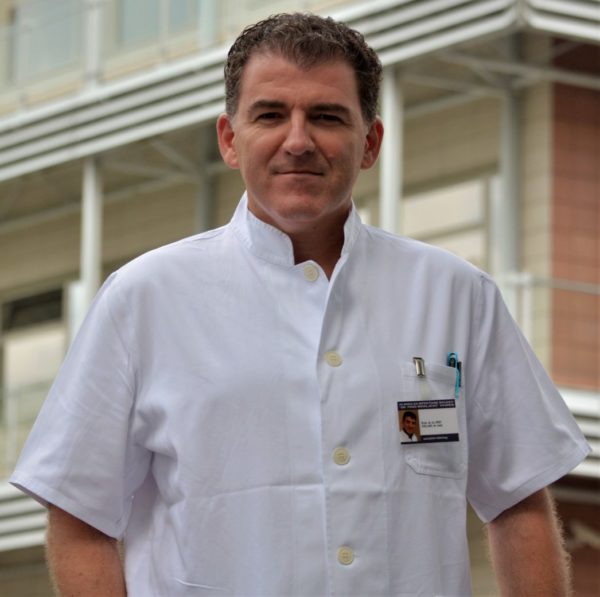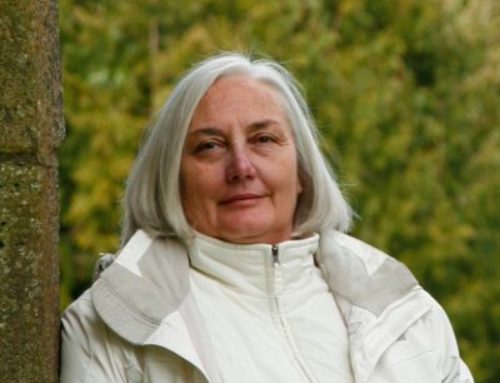Dear Friends,
We are still very busy with the epidemic… also trying to collect the data on our patients and summarize the outcomes of the hospitalized patients…
I am sending you two articles regarding vaccination and about the possible end of the story in 2022.In the literature, most of the concerns are related to short-term complications (myocarditis and so on) and consequences. But the real impact of COVID-19 on health will be truly understand in few years since many patients express different long-term complications and consequences that will be better realized in the future. Also regarding possible side effects.
In my opinion, in assessing the effectiveness and usefulness of vaccination, wearing masks and other restrictive epidemiological measures, their current effect not only on protecting individuals but also on protecting the community as a whole should not be neglected… since it helped in slowing the spread of the epidemic, decreasing excess in number of patients… because excessive number of sick people leads to health system dysfunction, poorer health care performance and the consequences of a pandemic in the form of increased morbidity and mortality (which is evident in numbers, although many are trying to downplay it).
Hope this could help you.
Yours in Christ!
Assist. Prof. Rok Čivljak, MD, PhD
University of Zagreb School of Medicine”, Dr. Fran Mihaljevic” University Hospital for Infectious Diseases
Reference Center for Diagnostic and Treatment of Infectious Diseases, Head
Department for Respiratory Tract Infections, Head
President Croatian Catholic Medical Society
………………………………………………………………………………………
London
Cite this as: BMJ 2022;376:o206 http://dx.doi.org/10.1136/bmj.o206 Published: 24 January 2022
Why mandatory vaccination for healthcare workers should not be scrapped
Daniel Sokol medical ethicist and clinical negligence barrister
At the time of writing (24 January 2022), unvaccinated NHS workers in England have only until 3 February 2022 to get their first dose of the covid-19 vaccine. Those who do not risk dismissal.
The i newspaper reported last Friday that the government was now “actively” considering a temporary suspension of the policy.1 A few days before, a leaked document written by officials at the Department of Health and Social Care raised doubts on the wisdom of mandatory covid vaccines for NHS workers.2 The argument is that two vaccine doses provide only up to 32% effectiveness against omicron infection, then gradually wane until no longer effective without a booster. Further, omicron, although far more transmissible, is less likely to lead to severe illness and hospital admission than the delta variant.
If these facts are correct, then in my view the answer is not to abolish mandatory vaccination for NHS workers, but to add a requirement to have a booster, which gives a high degree of protection against omicron.3
The risk of hospital admission from omicron may only be half that of delta but it can still cause severe disease, even death, in some people, particularly older populations, the immuno-compromised, and those with underlying health conditions.4 5 While covid cases are starting to fall in the UK, on Tuesday 18 January 2022, there were 438 new covid deaths, the highest number since February last year.6 Omicron is still causing significant strain on the healthcare system.
The General Medical Council, in its guidance Good Medical Practice, instructs doctors to be “immunised against common serious communicable diseases (unless otherwise contraindicated).”7 The Royal College of Nursing announced on 22 September 2021 that all members of the nursing team should have “any vaccine deemed necessary to help protect themselves, patients, colleagues, family members, and the wider community” and noted that this requirement was enshrined in the code of the Nursing and Midwifery Council.8 The Hippocratic Oath, probably the best known ethical code for doctors, states “I will use treatments for the benefit of the ill in accordance with my ability and my judgement but from what is to their harm or injustice I will keep them.”
In my view, being vaccinated against covid forms part of this Hippocratic obligation to keep the ill from harm. The unvaccinated may cause direct harm by transmitting the virus to their patients, although the jury is still out on the impact of vaccination on the transmissibility of covid. The latest covid-19 vaccine surveillance report from the UK Health Security Agency, dated 20 January 2022, noted that “several studies have provided evidence that vaccines are effective at preventing infection” and that “the vaccines provide some protection against transmission.” The report referred to a number of studies providing evidence of reduced risk of household transmission from vaccinated cases compared to unvaccinated ones.9
Unvaccinated healthcare workers can also cause indirect harm from staff absences and disruption to the health service caused by severe disease. The UK Health Security Agency’s Technical Briefing 34, published on 14 January 2022, noted that vaccine effectiveness after a booster dose against hospital admission is 85-90% for the omicron variant.10 New data from the Centers for Disease Control and Prevention show that unvaccinated adults aged 18 to 49 are 12 times more likely to be admitted to hospital than those who are vaccinated. For hospital admission is 44 times greater.11
Yet, despite acknowledging that clinicians who refuse vaccination are flouting professional guidance and failing to protect themselves and others, the Royal College of Physicians, the Royal College of General Practitioners, the Royal College of Nursing and the Royal College of Midwives are opposed to mandatory vaccination of healthcare workers due to the risk that it will exacerbate staff shortages, leaving some services untenable and therefore putting patients at arisk.12 -15 In my view, this is contrary to common sense and risks damaging the reputation of the medical professions. apparent incongruity of the profession’s resistance to a law requiring its members to be vaccinated when it has shouted from the rooftops that everyone should get the vaccine and publicly declared that unvaccinated clinicians are in breach of their ethical code. “If it is so important,” one might wonder, “why shouldn’t it be mandatory for healthcare staff?” respondents believed medical providers should be required to be vaccinated against covid-19.16 In France, 72% held that view in a poll last July for Le Figaro.17 This has become official policy in many countries, including France, Germany, Italy, Greece, Finland, Croatia, the Czech Republic, Hungary, Lebanon, Poland and New Zealand.18
Some have called for a gentler approach towards vaccine hesitant staff, focused on discussion and the bmj | BMJ 2022;376:o206 | doi: 10.1136/bmj.o206 1
OPINION
education. This approach can be effective, but there has been plenty of time for that. NHS staff were one of the first to be offered the vaccine, over a year ago. Many NHS trusts have held Q&A sessions and offered support for unvaccinated staff. Those who remain unpersuaded at this late stage, even when warned by their professional bodies that they are breaching their code of ethics, are unlikely to change their minds without a strong incentive to do so. This incentive is their continued employment in the NHS.
The greatest fear associated with mandatory vaccination is a mass exodus of staff, leaving the health system in disarray. There are approximately 73 000 patient-facing NHS workers who have not received a single dose of the vaccine.19 In France, as of November 2021, only 1,350 clinicians out of 374 000 have been banned from practising medicine for failing to comply with the law on mandatory vaccination.20 In New York state, which imposed mandatory vaccination for healthcare stafflast September, the predicted staffing crisis in hospitals did not materialise.21
Healthcare workers, like everyone else, are free to refuse the covid vaccine. If they exercise this right, however, they cannot work with vulnerable patients. To do so would be contrary to the ethics of their profession, as set out in their professional codes, and is likely to damage public trust and confidence in the medical profession.
Competing interests: Daniel Sokol is a medical ethicist and clinical negligence barrister. He is the author of ‘Tough Choices: Stories from the Front Line of Medical Ethics.’ (Book Guild, 2018).
Provenance and peer review: not commissioned, not peer reviewed
1 The i. Covid vaccine mandate for NHS staff could be paused. https://inews.co.uk/news/poli tics/covid-vaccine-mandate-nhs-staff-paused-government-workers-sacked-1416578 2 The Guardian. Health department warnign over vaccine mandate for NHS England staff. https://www.theguardian.com/society/2022/jan/18/health-department-warning-over-vaccine mandate-for-nhs-england-staff
3 Mahase E. Covid-19: Hospital admission 50-70% less likely with omicron than delta, but transmission a major concern. BMJ 2021;375:n3151. doi: 10.1136/bmj.n3151. pmid: 34952835 4 Hospitalization Risk from Omicron ‘Around a Third of Delta’ https://www.web md.com/lung/news/20220105/hospitalization-omicron-delta
5 What we know about omicron symptoms recovery. https://www.beckershospitalreview.com/pub lic-health/what-we-know-about-omicron-symptoms-recovery-a-clinical-timeline.html 6 Britain reports 438 new covid deaths, highest https://www.reuters.com/world/uk/britain-reports 438-new-covid-19-deaths-highest-since-february-2022-01-18/
7 General Medical Council. Good Medical Practice. https://www.gmc-uk.org/ethical-guidance/ethical guidance-for-doctors/good-medical-practice/domain-2–safety-and-quality
8 The Royal College of Nursing. RCN position on mandating vaccination for health and social care staff. https://www.rcn.org.uk/about-us/our-influencing-work/position-statements/rcn-position on-mandating-vaccination-for-health-and-social-care-staff
9 Covid-19 vaccine surveillance report. https://assets.publishing.service.gov.uk/government/up loads/system/uploads/attachment_data/file/1049160/Vaccine-surveillance-report-week-3- 2022.pdf
10 SARS-CoV-2 variants of concern and variants under investigation in England. https://assets.pub lishing.service.gov.uk/government/uploads/system/uploads/attachment_data/file/1048395/tech nical-briefing-34-14-january-2022.pdf
11 The Guardian. Unvaccinated seniors 49 times more likely to be hospitalized than those with boosters–CDC. https://www.theguardian.com/us-news/2022/jan/21/cdc-covid-vaccine-hospitals americans
12 RCP responds to news that COVID-19 vaccines will be mandatory for NHS frontline staff https://www.rcplondon.ac.uk/news/rcp-responds-news-covid-19-vaccines-will-be-mandatory nhs-frontline-staff-0
13 RCGP opposes mandatory Covid-19 vaccination for NHS workers https://www.rcgp.org.uk/about us/news/2021/november/opposition-mandatory-vaccination-nhs-workers.aspx 14 RCN position on mandating vaccination for health and social care staff https://www.rcn.org.uk/about-us/our-influencing-work/position-statements/rcn-position-on mandating-vaccination-for-health-and-social-care-staff
15 RCM calls for immediate delay to NHS staff mandatory vaccination plans https://www.rcm.org.uk/media-releases/2021/december/rcm-calls-for-immediate-delay-to-nhs staff-mandatory-vaccination-plans/
16 The Economist/YouGov Poll. July 31 – August 3, 2021 – 1500 U.S. Adult Citizens https://docs.cdn.yougov.com/8w7calyx30/econTabReport.pdf
17 Covid-19: 72% des Français pour la vaccination obligatoire des soignantshttps://www.lefigaro.fr/poli tique/sondage-72-des-francais-pour-la-vaccination-obligatoire-des-soignants-20210701
18 Factbox: Countries making COVID-19 vaccines mandatory https://www.reuters.com/busi ness/healthcare-pharmaceuticals/countries-making-covid-19-vaccines-mandatory-2021-08-16/
19 The I. Covid vaccine mandate for NHS staff could be ‘paused’ by Government over fears 70 000 workers would be sacked https://inews.co.uk/news/politics/covid-vaccine-mandate-nhs-staff paused-government-workers-sacked-1416578
20 Le Figaro. Obligation de vaccination: 160 médecins libéraux suspendus à ce jour, selon l’Assurance 0maladie https://www.lefigaro.fr/flash-actu/obligation-de-vaccination-160-medecins-liberaux suspendus-a-ce-jour-selon-l-assurance-maladie-20211118
21 Dyer O. Covid-19: New York’s health workers agree to vaccinate as mandate bites. BMJ /2021;374:n2390. doi: 10.1136/bmj.n2390. https://www.bmj.com/con tent/374/bmj.n2390. pmid: 34583927
the bmj | BMJ 2022;376:o206 | doi: 10.1136/bmj.o206
………………………………………………..
Covid-19: Europe could be headed for pandemic “endgame,” says WHO region chief
BMJ 2022; 376 doi: https://doi.org/10.1136/bmj.o205 (Published 25 January 2022)Cite this as: BMJ 2022;376:o205
- Owen Dyer
The rapid spread of the omicron variant of SARS-CoV-2 could see an end to the pandemic in Europe, with the variant likely to have infected 60% of people on the continent by March, the World Health Organization’s regional director for Europe has said.
“It’s plausible that the region is moving towards a kind of pandemic endgame,” Hans Kluge told Agence France-Presse on 23 January. Once the current wave subsides, he said, “there will be for some weeks and months a global immunity, either thanks to the vaccine or because people have immunity because of the infection, and also lowering seasonal risk.”
“We anticipate that there will be a period of quiet before covid-19 may come back towards the end of the year, but not necessarily the pandemic coming back,” Kluge said.
But Kluge said it is still too early to consider covid-19 endemic and warned that other variants could emerge to upset calculations. “There is a lot of talk about ‘endemic’ but endemic means that it is possible to predict what’s going to happen,” he said. “This virus has surprised us more than once.”
Given the variant’s rapid spread across Europe, Kluge said countries should focus on “minimising disruption of hospitals, schools, and the economy, and putting huge effort into protecting the vulnerable,” rather than imposing lockdowns.
Few European countries are closing down even as some see astronomical case numbers. Denmark reopened a range of public buildings last week on a day when it set a record for new infections. France’s government has promised to ease restrictions from early February, despite experiencing daily case numbers at least five times higher than in any previous wave.
Spain’s government is preparing to unveil a revamped approach to covid that is closer to its traditional flu surveillance model, a policy labelled “fluisation” (fluización) in the Spanish media. Prime Minister Pedro Sanchez said in a radio interview that given omicron’s milder nature, “we have to evaluate the evolution of covid from pandemic to an endemic illness.”
Omicron wave recedes in Africa and the US
Cases are surging in Russia and India as omicron takes hold, but in the US and across most of Africa the omicron wave is already receding. “Things are looking good,” the US presidential covid adviser Anthony Fauci told ABC News on Sunday. If trends continue on their current course, he said, “I believe that you will start to see a turnaround throughout the entire country.”
Africa is already emerging from its fourth, omicron driven wave, WHO’s regional director Matshidiso Moeti reported on 20 January. “While the acceleration, peak, and decline of this wave have been unmatched, its impact has been moderate, and Africa is emerging with fewer deaths and fewer hospital admissions,” said Moeti. While the continent’s case fatality ratio was above 2.4% in the three previous waves, with omicron it fell to 0.68%, she said.
But WHO director general Tedros Adhanom Ghebreyesus sounded a more pessimistic note at a 24 January press conference, in which he appeared to take aim at the comments of his agency’s Europe director. “It is dangerous to assume that omicron will be the last variant, or that we are in the endgame,” he warned. “On the contrary, globally the conditions are ideal for more variants to emerge.”
“Since omicron was first identified just nine weeks ago,” said Tedros, “more than 80 million cases have been reported to WHO—more than were reported in the whole of 2020.”
“Learning to live with covid cannot mean that we give this virus a free ride,” he said. “It cannot mean that we accept almost 50 000 deaths a week from a preventable and treatable disease.”
By failing to produce and equitably distribute vaccines for all, he said, countries had allowed the pandemic “to continue to drag on, lurching between panic and neglect.”
“We can end the acute phase of the pandemic this year—we can end covid-19 as a global health emergency, and we can do it this year,” said Tedros.
This article is made freely available for personal use in accordance with BMJ’s website terms and conditions for the duration of the covid-19 pandemic or until otherwise determined by BMJ. You may download and print the article for any lawful, non-commercial purpose (including text and data mining) provided that all copyright notices and trade marks are retained.https://bmj.com/coronavirus/usage
……………………………………………………………………………………









